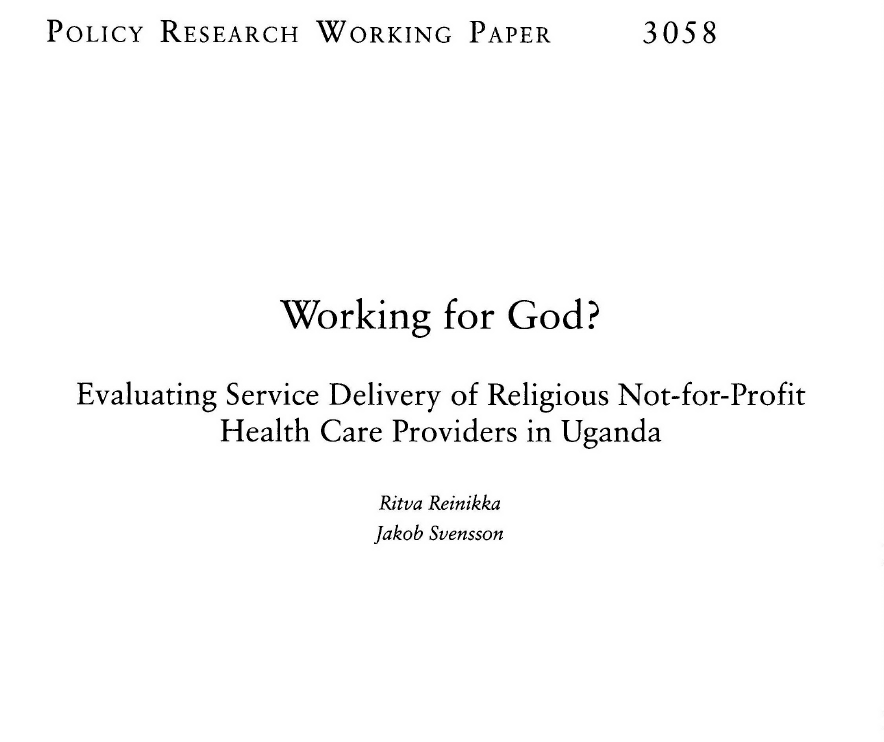
Resource Library
Working for God? Evaluating service delivery of religious not-for-profit health care providers in Uganda
Reinikka and Svensson exploit a unique micro-level data set on primary health care facilities in Uganda to address the question: What motivates religious not-for-profit (RNP) health care providers? The authors use two approaches to identify whether an altruistic (religious) effect exists in the data. First, examining cross-section variation, they show that RNP facilities hire qualified medical staff below the market wage, are more likely to provide propoor services and services with a public good element, and charge lower prices for services than for-profit facilities, although they provide a similar (observable) quality of care. RNP and for-profit facilities both provide better quality care than their government counterparts, although government facilities have better equipment.
Resource Type : Other
Country : Uganda
Year : 2005-08-01T10:15:00
Language : English
Project : SHOPS


